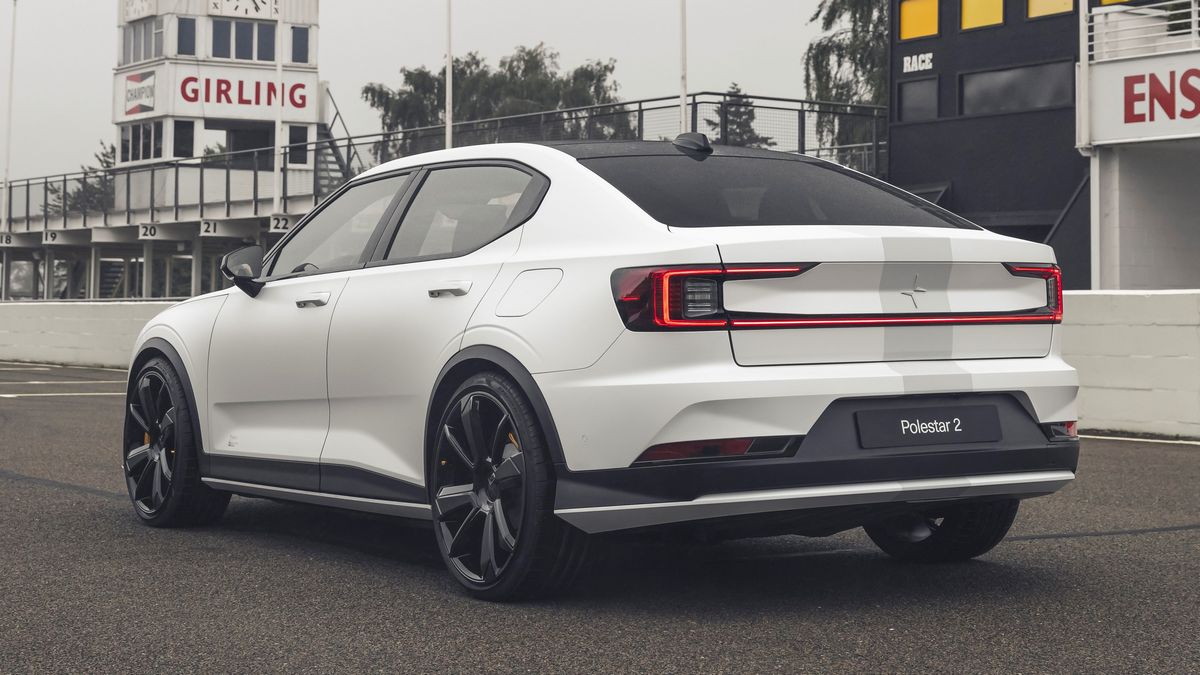On Tuesday, the federal government finalized a set of rules that will effectively ban nearly all Chinese cars from the American market. The long-expected move came as the outgoing Biden administration rushed to finalize some regulations before leaving office.
The rule wouldn’t explicitly ban the import of Chinese cars – a move that might not be permitted under some trade agreements the U.S. has signed. Instead, it bans software developed in China or Russia on national security grounds.
The final rule is also softer than earlier proposals, with a significant loophole that may allow American automakers to keep some cars currently imported from China.
Regulations vs. Laws
Federal regulations are not laws. They’re the rules federal agencies follow as they interpret laws. The departments of the federal government, part of the executive branch, write and alter them without input from Congress, though they’re meant to carry out the laws Congress has passed.
When a federal agency writes a new regulation, it posts a draft for public comment. It then reads the comments, alters the rule if it finds some comments helpful, and publishes a final version.
Chinese Cars Are Taking Over the Global Auto Industry
China’s auto industry has grown at an unprecedented pace, and is quickly coming to lead the world. The Chinese now buy more cars than any other population and increasingly prefer electric vehicles (EVs) built by their own domestic brands.
Chinese cars increasingly equal or exceed Western cars in quality while retaining lower prices. That helped China become the world’s leading exporter of cars in 2023. Chinese brands can move into a country’s market and quickly become dominant.
Surveys show that Americans increasingly know Chinese car brands they can’t yet buy. Chinese automakers have grown prominent in Mexico and made early inroads into Canada, leading many to fear that low-priced Chinese cars will appear on the American market, where American automakers would struggle to compete with them.
Rules Designed to Counter a National Security Threat
However, the rules aren’t explicitly designed to help American industry compete. Instead, they target perceived national security threats.
The Commerce Department’s Bureau of Industry and Security wrote the new regulations. The bureau explains, “Certain technologies originating from the PRC [People’s Republic of China] or Russia present an undue and unacceptable risk to U.S. national security.”
“Cars today aren’t just steel on wheels – they’re computers. They have cameras, microphones, GPS tracking, and other technologies that are connected to the internet. Through this rule, the Commerce Department is taking a necessary step to safeguard U.S. national security and protect Americans’ privacy by keeping foreign adversaries from manipulating these technologies to access sensitive or personal information,” said U.S. Secretary of Commerce Gina Raimondo.
Many American Cars Are Partly Chinese
Some automakers widely considered American build some cars in China.
GM’s Buick Envision and Ford’s Lincoln Nautilus are both built in China and imported to the U.S.
Volvo and its EV spinoff, Polestar, are both owned by Chinese automaker Geely. The companies build some cars in the U.S. but also build several vehicles in China, including the Volvo S90 and Polestar 2.
Other cars built in the U.S. use many Chinese parts. A recent study found that Telsa builds the vehicles with the highest percentage of American and Canadian parts. But even the company’s “most American” cars use Chinese-made seats, dashboard components, and more.
These Chinese ties had many domestic automakers worried that a final rule could ban some of their current cars. Polestar warned that a strict rule could put it out of business in the U.S.
Softened Proposal
Yesterday’s rules finalize a proposal begun last February. The most significant change between the proposal and the final version is an exemption that may protect the Envision, the Nautilus, and perhaps even Chinese-built cars like the Polestar 2.
Reuters explains, “In a shift, the [Commerce] department said the bans would not cover Chinese software developed before the new rules took effect, so long as it was not being maintained by a Chinese firm.”
That change “means General Motors and Ford could potentially continue to import some Chinese-made vehicles for U.S. buyers, a senior official told reporters.” Its impact on Polestar is not yet clear. However, it could allow the company to continue importing its Polestar 2 sedan. The company’s next product, the Polestar 3 SUV, will be built in South Carolina.
Reuters reports, “An administration official said officials expect Polestar would need to seek specific authorization under the final rule. Polestar declined to comment.”








